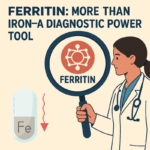“Not All in Her Head”: Callie’s Story of Seizures, Strength, and Starting Over
Callie always knew she wanted to be a nurse. She was a natural nurturer—one of those rare people who truly care about the wellbeing of everyone around them. But somewhere along the way, her dream got derailed.
In her late teens, Callie faced a series of challenges: asthma, a car accident, and then a traumatic event. Still, she pushed forward—doing well in school, focused on her goal, determined to become a nurse. But then her body began to break down.
It started with daily headaches, then widespread pain. And then, something no one expected: her first grand mal seizure.
At the time, she was under immense stress—studying for a major exam, moving apartments, and recovering from a viral illness. She was rushed to the emergency room and started on seizure medications. But the seizures didn’t stop.
Multiple hospital visits and neurology consultations followed. Her tests—including EEGs—were normal. Eventually, she was diagnosed with psychogenic non-epileptic seizures (PNES): episodes that mimic seizures but stem from unresolved distress in the nervous system—not from abnormal brain waves. The diagnosis came with a heavy dose of stigma. At one point, someone even told her she was “making them up.”
Nothing could’ve been further from the truth.
Callie hated the seizures. They lasted anywhere from minutes to hours. They were unpredictable, physically exhausting, and emotionally devastating. Tearfully, she told me: “I wish my brain waves were abnormal—at least then I could take a pill and it would stop.”
By the time she came to our office, her parents were emotionally spent. “She’s in therapy, she’s on medications, we’re doing everything we can,” they said. “But this isn’t just in her head.”
Callie echoed their concern: “If my EEG is normal, maybe everyone’s right. Maybe I am crazy.”
But she also said something more important: “I just want to understand what’s happening inside my body. I want my life back.”
Asking the right questions
This isn’t just a story about seizures. It’s a story about what happens when we stop asking “What’s wrong with you?” and start asking “What happened to you?” That’s when we introduced Callie to the Kaplan Method™.
Our approach begins by recognizing that immune system dysfunction often lies at the root of chronic illness. We look beyond symptoms to understand how early life experiences, family stressors, environmental triggers, and nervous system imbalances shape the body’s ability to heal. Our team—including acupuncturists, psychotherapists, physical therapists, and nutritionists—works together to build individualized plans focused on resilience and recovery.
For Callie, it was the first time someone told her that her seizures weren’t imagined—and they weren’t her fault. We started the process together and four months later Callie came to her visit smiling.
Her seizures haven’t completely resolved—but they’re far less frequent. She’s sleeping better. Her energy is returning. She’s even back to working out. Her parents are hopeful again. And most exciting of all?
This fall, Callie is enrolling in her nursing master’s program. Her dream is back within reach. This is what can happen when we believe someone—and treat the whole person. And Callie’s story is just beginning.
We are here for you, and we want to help.
Our goal is to return you to optimal health as soon as possible. To schedule an appointment please call: 703-532-4892 x2






Leave a Reply
Want to join the discussion?Feel free to contribute!